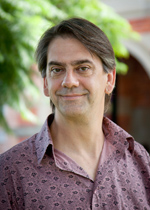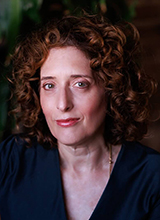10 Years On From the Cronulla Riots
On Sunday 11 December 2005, a riot occurred on Cronulla Beach in Sydney's south where a crowd of 5000 white Australian men went on a rampage to attack anyone of 'Middle Eastern appearance'.
Rioters carried the slogans '100% Aussie Pride' and 'We grew here you flew here' to call upon 'Aussies' to participate in 'Leb and Wog bashing day'.
In the days that followed, groups of young men of 'Middle Eastern appearance', mostly from the south-western suburbs of Sydney, conducted revenge attacks. New media played a crucial role in mobilising the riots, with 270,000 text messages being sent and received to help wrap rioters and those who retaliated in a shared sense of purpose.
10 years on from what has been described as the 'day that shocked our nation', ICS researchers Professor Greg Noble and Associate Professor Alana Lentin (pictured below) share their expert opinion on what we've learned from the event – and how much we still need to learn.
ICS Experts on The Cronulla Riots
Professor Greg Noble is a member of the Institute for Culture and Society. He has written extensively on the areas of youth, ethnicity and identity, cultural diversity and multiculturalism. He is Editor of Lines in the Sand: The Cronulla Riots, Multiculturalism and National Belonging, among many other books.
Associate Professor Alana Lentin is a member of the Institute for Culture and Society. She works on the critical theorisation of race, racism and antiracism, and is the author of three books including The Crises of Multiculturalism.


10 years on from the riots, what have we learned?
Noble: A decade after the Cronulla riots, and I am still not sure what we have learned from them. They offered a moment when we could reflect on the nature of Australian society, particularly questions of social inclusion and the persistence of racism, but that moment seemed to pass very quickly. In fact, we are still not even sure what the 'problem' was – for some it is simply a question of the racist nature of Australian society, while for others it is the lack of assimilation of people from Middle Eastern countries; some see it as an issue of violence amongst young men, whatever background, and the role of alcohol in fuelling that violence, while others focus on the influence of shock jock radio and tabloid journalism in provoking social conflict. In any case, we simply never got around to having a serious discussion of all the issues underlying the Riots. This fed a series of somewhat rash attempts to address what some governments and local councils saw as the problem – and threw a fair bit of money around through their proposed 'solutions' – but without a serious discussion it is hard to say what benefit these programs had.
Lentin: That nothing will be gained by relativising or diminishing the reality of systemic racism, Islamophobia and anti-asylum seeker politics. Over the last few years we have seen a growing discourse of 'casual racism' as a way of explaining what are seen as isolated incidents of racism which are portrayed as divorced from any institutional responsibility. Hence, the racism experienced by Adam Goodes or incidents of racism on public transport are decried, but always the defensive actions of ordinary Australians (in itself a racialised construct) are emphasised as proof of the comforting belief that most Australians are tolerant and accepting of difference. There is no attempt made in these analyses to connect everyday micro-aggressions to issues such as the lack of minority representation, the mass and disproportionate criminalisation and incarceration of Aboriginal people, the forced closures of their communities, or the concentration camps in which asylum seekers are indefinitely imprisoned on offshore islands. We must start connecting the dots.
What did the riots teach us about intercultural relations and multiculturalism in Australia?
Lentin: Australian leaders, such as Malcolm Turnbull in his response to the Parramatta shooting, like to describe Australia as a multicultural success story. However, the way in which multiculturalism is configured is in terms of the onus being placed on racialised minorities and migrants to integrate to what is purported to be the Australian way of life. Understanding itself as a Western nation, rather than as part of the Global South, White Australians have no reason to shift to accommodate those who are seen as culturally aberrant. With Cronulla, the idea of being un-Australian became acceptable in the mainstream. Cronulla was a segue to Hansonism and the virulent anti-asylum seeker politics spearheaded by John Howard under the shade of 9/11. But the unproblematised existence of racism against Muslims in the mainstream is Cronulla's legacy.
Noble: The absence of reasoned and informed political and media debate in Australia was a clear concern for me – politicians and commentators went for the blame game, or steadfast refusals to accept that racism was a deep and ongoing issue in Australian society. This fed a series of somewhat rash attempts to address what some governments and local councils saw as the problem – and threw a fair bit of money around through their proposed 'solutions' – but without a serious discussion it is hard to say what benefit these programs had. The Cronulla Riots remains as a social scab we occasionally pick at, but it has a vague and somewhat mythic role in public discourse.
Did the riots signal a crisis in multiculturalism?
Lentin: As I wrote in my book, The Crises of Multiculturalism (2011 with Gavan Titley), the idea of multicultural crisis is a construction of political elites based on an objection, not to multicultural policy (which was initially introduced in various countries as a panacea to quell the autonomous antiracist organising of people of colour and immigrants), but to the fact of 'multiculturality' – what the British journalist David Goodhart called 'too much diversity'. Cronulla was not a crisis of multiculturalism but an overt demonstration of the filtering down of state racism.
Have the Cronulla riots been superseded by Islamic terrorism as the key symbolic definer of intercultural relations in Australia?
Noble: Importantly, coming in a period overshadowed by the attacks of September 11 and the London Bombings, and other events In Australia and around the world, it seems to have become more a footnote in a larger story of the supposed failure of multiculturalism – a popular rhetoric especially in Europe. But if we haven't really worked out what the issues are, then blaming multiculturalism seems an easy but foolish response. Thankfully this rhetoric is not quite so powerful in Australia, and there remains strong support for multiculturalism. But for some sections of Australia society, the Riots somehow confirm their view of the 'problem' of Middle Eastern communities, and gets linked to Islamic terrorism and radicalisation. In fact, I think it is fair to say that the riots have been largely superseded by the figure of the Muslim extremist as the key 'folk devil' in Australia and internationally, yet the riots also feed the moral panics around terrorism while ongoing problems of the casual violence among young men seems to be categorised as a different kind of problem.
Lentin: Islamic terrorism has nothing to do with intercultural relations. We must understand radicalisation and terrorism in the context of geopolitical relations, namely war and other aggressions, such as increasingly drone strikes, the western capitalisation of and reliance on Middle East oil, and the concomitant racial profiling and policing of Muslim communities in our suburbs. As the critical race theorist Yassir Morsi has said, Islamophobia and Islamism exist in a contingent relationship where both rely on and reproduce the western dictums of liberalism – either by upholding or resisting them. What we need is a way forward which sees beyond the hegemony of western universalism.
Professor Greg Noble will give a presentation on this topic, titled 'Cronulla Riots – 10 Years On – Where the Bloody Hell Are We Now?' at The Muslim Question – Citizenship and Racism in Australia Conference, jointly hosted by ICS and Alfred Deakin Institute on 14-15 December at Deakin University.
Posted: 11 December 2015.
Media
Professor Greg Noble was interviewed by SBS for their documentary, 'Cronulla Riots: The Day that Shocked the Nation'. Watch the documentary on the SBS website (opens in a new window).
Professor James Arvanitakis was interview by Triple J program about the 10 year anniversary of the Cronulla riots. Listen to the podcast on the Triple J website (opens in a new window).




